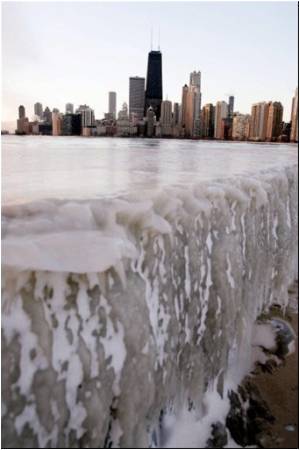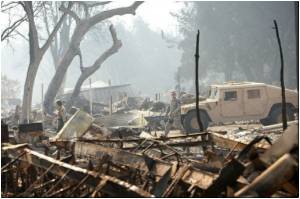
It is the first time in a published paper that he has recommended specific action to forestall the growing effects of climate change.
"Unless large numbers of people take appropriate steps, including supporting governmental regulations aimed at reducing greenhouse gas emissions, our only options will be adaptation and suffering," he wrote in the concluding paragraph.
"And the longer we delay, the more unpleasant the adaptations and the greater the suffering will be."
In the paper, Thompson said that virtually all climate researchers "are now convinced that global warming poses a clear and present danger to civilization."
His opinion isn't hyperbole, he said, but instead is based on a "very clear pattern in the scientific evidence documenting that the Earth is warming, that the warming is due largely to human activity, that warming is causing important changes to many of the Earth's support systems, and that rapid and potentially catastrophic changes in the near future are possible.
Advertisement
Thompson listed three options humanity has for dealing with global warming which, he said, "is here and is already affecting our climate, so prevention is no longer an option."
Advertisement
He says that there are currently no technological quick fixes for global warming.
"Our best hope," he said, "is to change our behavior in ways that significantly slow the rate of global warming, thereby giving engineers and scientists time to devise, develop, and deploy technological solutions where possible."
The study has been published in journal The Behavior Analyst.
Source-ANI









